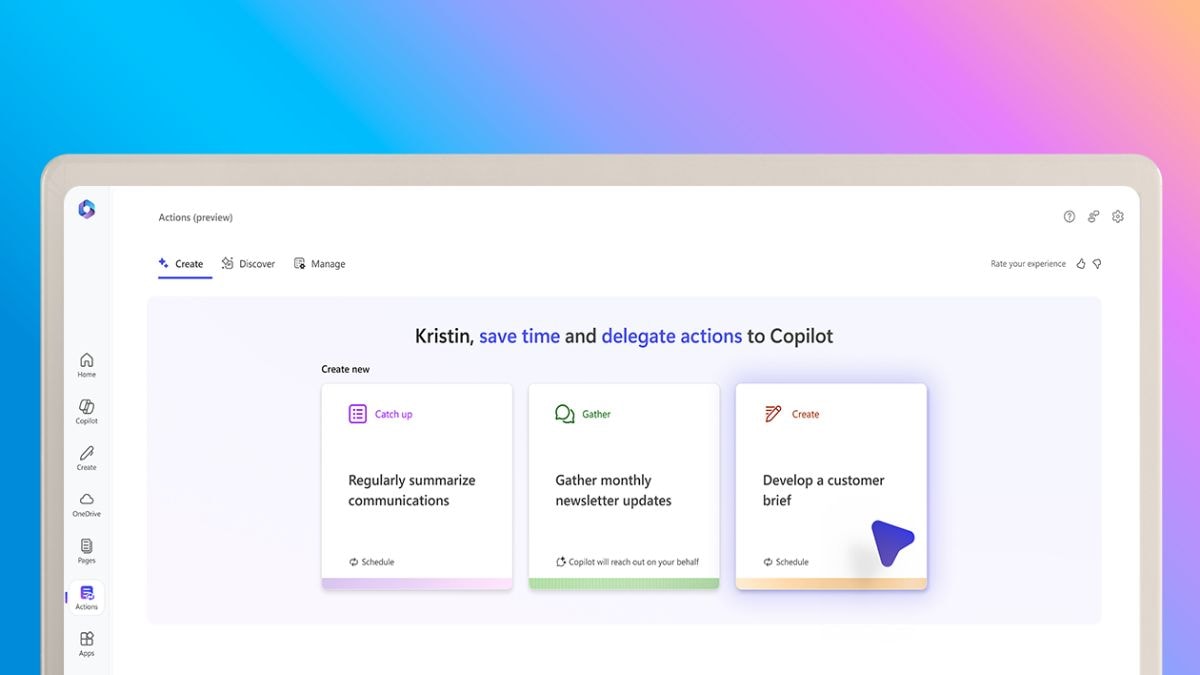
Microsoft recently announced the gradual rollout of Copilot Actions on Windows 11. It is an experimental agentic capability, available to Windows Insiders, which automates tasks by assigning an AI chatbot to everyday actions. The company, however, cited novel security risks and recommended that this feature should only be utilised if users understand its security implications. Experts have now warned about Copilot Actions, calling Microsoft’s security boundaries “not really a boundary.”

Adobe, on Thursday, announced that it will offer free access to its flagship productivity and creativity apps to students in India via accredited higher education institutions, including 15,000 schools and 500 colleges. Additionally, the company has announced that it will start offering an AI training curriculum and certifications to students in collaboration with NASSCOM FutureSkills Prime in the country. Both announcements were made at the AI Impact Summit 2026, which is taking place at Bharat Mandapam in New Delhi.

Meta is reportedly planning to launch its first smartwatch later this year, focusing on health tracking and a built-in Meta AI assistant. A recent report suggests the device, code-named Malibu 2, could debut alongside updated Ray-Ban Display smart glasses and may replace the neural wristband used for gesture controls. The move would revive Meta’s shelved smartwatch project from 2022. The report also notes Meta has delayed its Phoenix mixed-reality glasses to 2027 amid a broader AR roadmap review.

AI Impact Summit 2026, which began on February 16, is witnessing multiple announcements from tech companies, apart from hosting conversations and meetings between industry leaders. On the fourth day of the summit, taking place at Bharat Mandapam in New Delhi, Pine Labs, the digital merchant payment gateway company, has announced that it is collaborating with Sam Altman-led OpenAI to embed the AI giant's APIs into the core of its global merchant ecosystem. This is said to help the company build agentic commerce for merchants.

Indian streaming platform JioHotstar has announced partnership with OpenAI on the sidelines of the India AI Impact Summit on Thursday. As part of the move, a ChatGPT-powered voice and text assistant will be integrated directly into the JioHotstar app. As per the ChatGPT maker, the new multilingual discovery tool can help users find content through natural language conversations.

Google DeepMind on Wednesday announced Lyria 3, its latest artificial intelligence (AI) music generation model. As per the Mountain View-based tech giant, the new model is integrated into the Gemini app for Android and iOS, and is designed to help users generate high-quality music tracks using simple text prompts, leveraging multimodal generative AI. Lyria 3 is positioned as a creator-focused tool aimed at simplifying music production for social media, video, and digital storytelling.

MakeMyTrip has partnered with OpenAI to expand its use of artificial intelligence in travel planning and booking. The company will integrate OpenAI’s APIs into its app to add new features to Myra, its trip planning assistant. The collaboration aims to address high-intent conversational travel queries and provide structured booking options for flights, hotels, and related services. MakeMyTrip said Myra handles over 50,000 conversations daily across multiple languages, with strong adoption in Tier-2 and smaller cities.
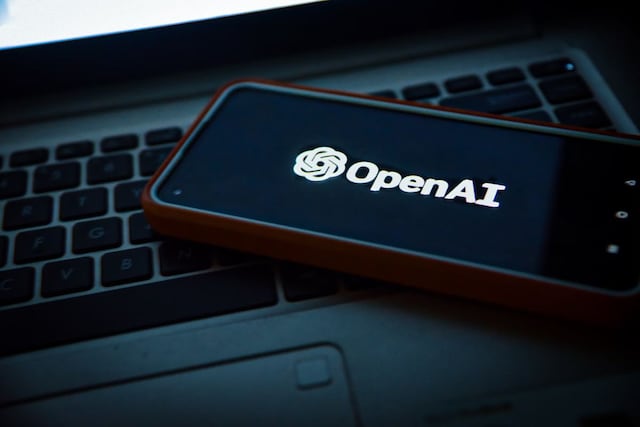
OpenAI is gearing up to open new offices in Bengaluru and Mumbai. The ChatGPT maker already has an office in New Delhi. The company also confirmed that India now accounts for over 100 million weekly ChatGPT users. It is collaborating with the Tata Group to develop an AI-ready data centre infrastructure in India. It has also announced the expansion of its OpenAI Certifications in India, and TCS will be a participating organisation in this initiative.
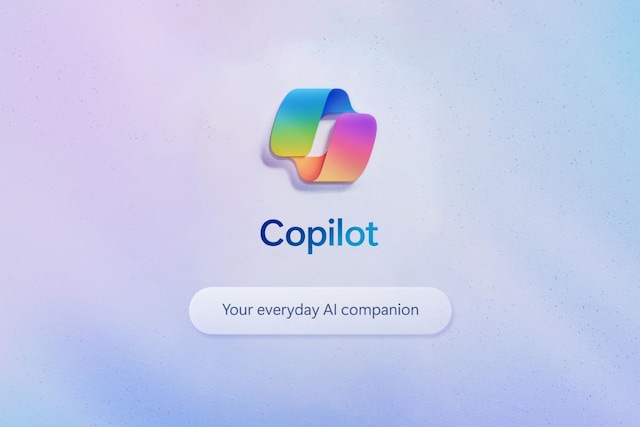
A Microsoft 365 Copilot bug reportedly allowed the AI assistant to summarise confidential emails for several weeks without permission. Microsoft reportedly acknowledged the issue, which was first detected in January. The bug, identified as CW1226324, reportedly affects the Copilot "work tab" chat feature. The company has not disclosed how many users are affected by the bug, but it is said to have begun rolling out a fix in early February.

AI Impact Summit 2026 was kicked off by the government on February 16 and is scheduled to conclude on February 21. The ongoing AI Impact Summit is witnessing various tech firms, industry leaders, and subject-matter experts from across the world coming together to hold discussions and showcase innovations. On the sidelines of the event, Sarvam and HMD announced that the Indian AI firm and Finnish company are entering a collaboration to introduce Sarvam’s AI-powered conversational assistant to HMD and Nokia feature phones.

OpenAI announced on Wednesday that it will collaborate with multiple higher education institutions in India to provide help and support to students in the country. The first cohort of institutes that the company will collaborate with will include the Indian Institute of Technology (IIT) Delhi, the Indian Institute of Management (IIM) Ahmedabad, the All India Institute of Medical Sciences (AIIMS) New Delhi, Manipal Academy of Higher Education (MAHE), University of Petroleum and Energy Studies (UPES), and Pearl Academy.

Google has announced America-India Connect, a collaborative infrastructure initiative anchored by Google's five-year $15 billion AI infrastructure investment in India. With this, the company aims to establish a new international subsea gateway in Visakhapatnam. It will create three new subsea paths connecting India to Singapore, South Africa, and Australia, and four strategic fibre-optic routes linking the US, India, and multiple locations across the Southern Hemisphere.

Google has announced that its annual developer conference, Google I/O 2026, will take place on May 19 and May 20. The dates were revealed after users solved an online puzzle, with the “save the date” page featuring Gemini-powered minigames. The event is expected to focus heavily on artificial intelligence, with updates across Gemini, Android, Search, Chrome, Workspace, and Pixel devices. Google will likely livestream key sessions, while the in-person venue is yet to be confirmed.

Union Minister for Electronics and Information Technology Ashwini Vaishnaw stated on Tuesday that major digital platforms such as YouTube, Meta, X, and Netflix must function within India’s constitutional boundaries. His remarks follow the government’s recent tightening of content‑takedown norms. He spoke during an AI summit in Delhi, which is hosting senior executives from leading global AI companies along with several world leaders this week.

Mihup.ai, an Indian artificial intelligence (AI) company, announced on Tuesday that it has entered into a new collaboration with the US-based chipmaker Qualcomm for its Edge Voice Intelligence stack. As part of the stack, the company's voice-based tools, built for the Banking, Financial Services, and Insurance (BFSI) sector, will now be capable of processing data on-device, eliminating the need to send them to a data centre. Mihup.ai claims that its on-device voice intelligence stack has been optimised for more than 12 regional languages of India.

Apple is said to be developing a new wave of AI-centric hardware. According to a seasoned journalist, the Cupertino-based tech giant’s lineup of artificial intelligence (AI) devices includes smart glasses, camera-equipped AirPods, and a wearable pendant device. Apple is said to be exploring new form factors that extend beyond the iPhone and Vision Pro. While the company has yet to confirm these plans, the projects are reportedly in active development, with early prototypes already being tested internally.

Sarvam Kaze will be launched in India later this year, in May, by Sarvam AI, the Indian AI firm, the co-founder of the company, Pratyush Kumar, announced on Tuesday. The new wearables will be unveiled in the country as the company's AI-powered device. Sarvam AI is known for providing AI text-to-speech and speech-to-text tools, including Bulbul v3. The upcoming Sarvam Kaze AI smart glasses were showcased on February 16 at India's AI Impact Summit 2026, which is taking place at New Delhi's Bharat Mandapam.

Sony Group has developed a technology that identifies copyrighted music embedded in AI-generated songs and estimates creator contributions, according to a Nikkei Asia report. The system can analyse training data or compare AI output with music catalogues and may support compensation frameworks and licensing negotiations for AI-generated content.

Apple has introduced Playlist Playground, a new Apple Intelligence feature in the iOS 26.4 developer beta for Apple Music. The tool lets users generate playlists using text prompts based on moods, genres, or themes. Users can access it from the Library section while creating a new playlist, and Apple Music will suggest songs automatically. Playlists can be refined with follow-up prompts and customised before saving. iOS 26.4 beta also includes dynamic backgrounds and a possible concerts discovery feature.

Anthropic and Infosys announced a partnership at the sidelines of India’s inaugural AI Impact Summit. Both companies stated that the collaboration will focus on jointly developing artificial intelligence (AI)-powered enterprise solutions. The two entities will also focus on developing agentic tools and AI agents to transform enterprises’ legacy systems into modern AI-first frameworks.

AI Impact Summit 2026 is in full swing, hosting industry leaders and technocrats from across the world. On the sidelines of the summit, on Tuesday, the Union Minister of Electronics and Information Technology (MeitY), Ashwini Vaishnaw, revealed that India expects to receive more than $200 billion (about Rs. 18.15 Lakh Crore) worth of investments in the country’s AI and deep tech ecosystem over the next two years. The AI adoption in the country is expected to leverage the existing technology framework, created with the help of India’s digital public infrastructure.

Adani Group has announced a $100 billion (roughly Rs. 9,07,300 crore) investment to develop renewable-powered hyperscale data centres for AI workloads by 2035, during the India AI Impact Summit 2026. The company said the programme could generate another $150 billion (roughly Rs. 13,61,100 crore) in related investments across servers, manufacturing, and cloud infrastructure. Adani Group plans to scale AdaniConneX’s capacity from 2GW to 5GW, with partnerships involving Google, Microsoft, and Flipkart. It also said it will support Indian startups, strengthen domestic supply chains, and build AI infrastructure talent.

On the second day of the inaugural AI Impact Summit, which is being hosted in New Delhi, a very interesting announcement has emerged. A Bengaluru-based artificial intelligence (AI) startup, Bharat1, has laid out the plans to build the world’s first “humanity-first” AI city in Bengaluru. While on the surface, the idea seems fantastical, the researchers are not really trying to have AI models run the entire city.

Google is reportedly expanding the split-screen compatibility of the Gemini app to non-foldable smartphones. As per the report, Gemini can now operate side-by-side in the split-screen mode even on regular handsets. So far, this capability has been limited to larger displays, such as foldables and tablets. But it appears that the Mountain View-based tech giant is slowly expanding it to all devices.

Anthropic inaugurated its first Indian office in Bengaluru on Monday. The artificial intelligence (AI) startup’s announcement came on the first day of the AI Impact Summit 2026, highlighting the company’s interest in the high potential of the country’s market. The Claude maker also highlighted that India is its second largest user base.

Advanced Micro Devices (AMD) announced the expansion of its strategic collaboration with Tata Consultancy Services (TCS) on Monday. The two tech giants will co-develop a state-of-the-art HPC solution based on the Helios platform, for accelerating research and innovation across industries. As per AMD, the initiative aims to combine its advanced data centre processors with TCS’ integration and services expertise to deliver powerful compute infrastructure tailored for complex workloads.

OpenClaw (formerly known as Moltbot and Clawd) Founder Peter Steinberger has decided to join OpenAI. On Sunday, he announced his decision to join the San Francisco-based artificial intelligence (AI) giant, and it appears he will be building AI agents for the company. Despite the move, Steinberger stated that OpenClaw will remain open-source.
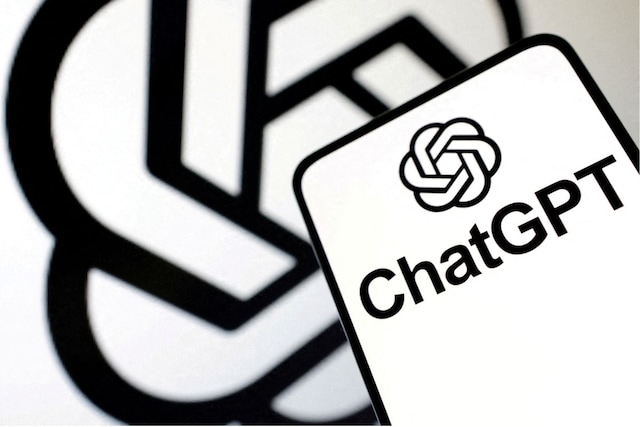
OpenAI’s Chief Executive Officer (CEO), Sam Altman, confirmed on Sunday, that he will be present in India this week for the government-hosted AI Impact Summit 2026, which is scheduled to begin on Monday (today). As part of the announcement, the company CEO revealed that its AI-powered chatbot, ChatGPT, now has 100 million (10 crore) weekly active users in India. The country still has the second-largest user base of ChatGPT, after the US, a position India has held for months now.

AI Impact Summit 2026, India’s inaugural global artificial intelligence (AI) conference, is all set to start. While sessions, exhibitions, and keynotes will occur between Monday, February 16, and Friday, February 20, the main AI summit will only take place on February 19 and 20. The five-day event will see key attendees from major AI companies, participating nations, and industry stakeholders.
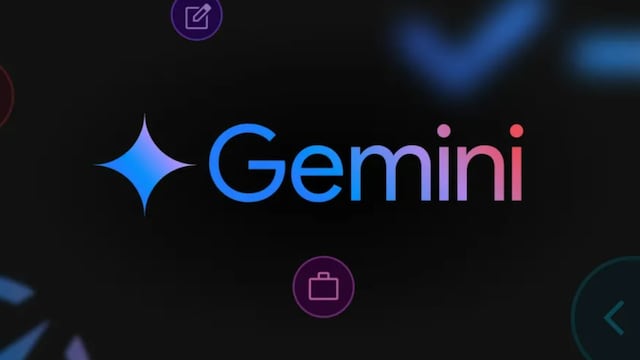
Google released a new artificial intelligence (AI) feature for Google Docs on Thursday. Powered by Gemini, the feature is dubbed Audio Summaries, and it lets users listen to a short audio summary of documents. The release is part of Google Workspace updates, although it is also available to select individual accounts. The Mountain View-based tech giant is releasing the capability only to paid subscribers at this time.

Google, on Thursday, updates its Gemini 3 Deep Think artificial intelligence (AI) model. The frontier model was already the company’s most intelligent model when it was launched in December 2025. Now, with this upgrade, Google says it can help scientists research challenging problems. The Mountain View-based tech giant highlighted that the update improves its performance across all major benchmarks.
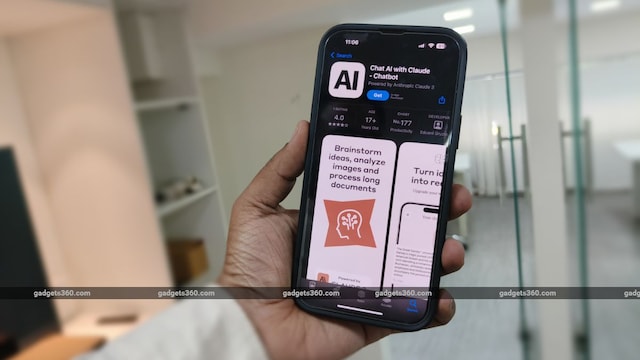
Anthropic is bringing several of Claude’s paid features to the free users. The artificial intelligence (AI) startup announced on Wednesday that those on the free plan of the chatbot will now be able to use four new features that were only accessible with the Pro and Max plans. So, anyone logged into Claude can now use File Creation, Skills, Connectors, and Compaction features.

OpenAI’s focus on Codex has intensified in 2026. The San Francisco-based artificial intelligence (AI) giant released the GPT-5.3-Codex model earlier this month, marking the first time the company prioritised a coding-focused model over its general-purpose version. Last week, OpenAI CEO Sam Altman reportedly called the growth of Codex “insane” after it grew by 50 percent in a week.

Medical Dialogues, an Indian medical journalism platform, announced that it has been selected to win the JournalismAI Innovation Challenge. It mentioned that it is the only publisher from the country to achieve the feat. The JournalismAI Innovation Challenge is a programme that funds projects from a wide range of news publishers to promote artificial intelligence (AI) fluency. The company said it was one of the 373 global publishers that applied to the competition.

Coinbase, the US-based cryptocurrency exchange platform, announced the launch of Agentic Wallet on Wednesday. The move comes amid rising interest in agentic artificial intelligence (AI) systems that can execute tasks autonomously, including financial operations on blockchain networks. While AI agents have advanced in analysis and recommendations, executing transactions with real funds has remained limited by the need for human oversight and secure key management.

OpenAI started testing ads in ChatGPT on Monday, and now several companies have announced their partnership with the San Francisco-based artificial intelligence (AI) giant for the pilot run. Among the frontrunners are Adobe, Audible, Ford, Target, Dentsu, and others. The brands, in separate announcement posts, said that they will use this ad opportunity to meet new customers in places where they already frequent.

Anthropic is reportedly working on a new feature for Claude’s mobile app. As per the report, the feature is dubbed Claude Tasks, and it is said to be focused on automation. The new feature is reportedly similar to Claude Cowork, the company’s automation tool for desktop. Tasks was reportedly spotted in the iOS version of the app, but it might also be developed for Android at a later time.

OpenAI updated the Deep Research tool in ChatGPT this week. The agentic research assistant was first introduced by the San Francisco-based artificial intelligence (AI) giant in February 2025, and it was designed to help users conduct multi-step research on complex topics. Now, one year later, the company has added more controls and a new full-screen report viewer to the tool, allowing users more flexibility in both creating the research document and viewing it.

Microsoft has highlighted several risks with artificial intelligence (AI) agents in its latest security report. The most interesting insight is about “AI double agents,” which are basically agents with excessive privileges but not enough safeguards. This makes them vulnerable to prompt engineering attacks by bad actors, and turns them into “double agents.”

Google-owned Mandiant Cybersecurity Consulting firm has published a report detailing the modus operandi of the North Korea-based UNC1069 threat actors, who specifically target entities in the cryptocurrency and decentralised finance industry. The hackers take out ClickFix scams using social engineering tactics. A victim is first contacted via Telegram, where they are sent a link to a fake Zoom meeting. After joining the meeting, the hackers play AI-generated deep fake videos of known personalities to gain their trust, in turn infecting their systems with malware families.
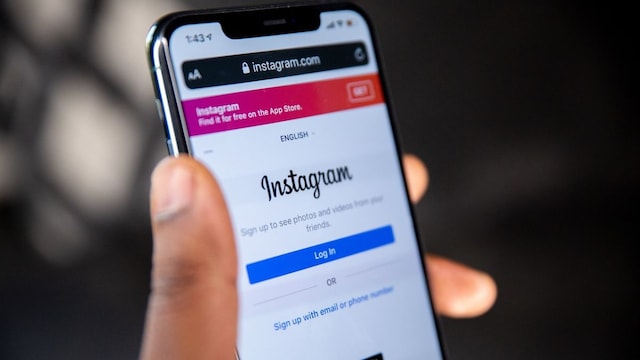
Instagram might soon release a feature that allows it to compete with OpenAI’s Sora app. As per a tipster, the Meta-owned platform is working on a face swap feature that allows users to submit their own likeness and generate images and videos using AI. Additionally, it is said that users will be able to request the likeness of other users as well.

Airtel has unveiled a new Fraud Alert system to warn users about potential bank-related one-time passwords (OTP) scams, the telecom service provider (TSP) announced. The system will leverage AI to detect potentially risky incoming calls after an OTP has been received. The TSP will then send alerts to users, intervening and warning subscribers. This comes soon after the Supreme Court stated during a hearing that Indians have lost more than Rs. 54,000 crore to digital arrest scams, during which a bad actor coerces victims to share their banking information and OTPs.

The Ministry of Electronics and Information Technology (MeitY) notified the amendments to the IT Rules, 2021, on Tuesday. The fresh rules focus heavily on artificial intelligence (AI)-generated content and deepfakes, bringing more flexible labelling guidelines for AI content and stricter takedown timelines for inappropriate media and deepfakes. These new sets of rules also more clearly define deepfakes and outline consequences for users who violate them.

Google Maps could soon get a new artificial intelligence (AI) feature that will let users have conversations about locations and routes. As per the report, the Mountain View-based tech giant is working on a feature dubbed “Ask Maps,” which brings a Gemini-like chat interface to the platform. If true, this would further integrate Maps as one of the company’s AI ecosystem products, after it released hands-free voice-based AI navigation assistance for several modes.

YouTube is rolling out a new AI Playlist generator for Premium users on Android and iOS. Announced in an X post, the feature lets subscribers create personalised playlists by entering text or voice prompts based on mood, genre, or theme. Users can access it through the Library tab by tapping “New” and selecting “AI Playlist.” Google has shared limited details so far, and reactions are mixed. The rollout follows similar AI playlist tools from Spotify, Amazon Music, and Deezer.

Google is reportedly planning to expand Personal Intelligence to NotebookLM conversations. As per the report, the Mountain View-based tech giant is testing the capability, which allows AI chatbots to seamlessly retrieve data from compatible knowledge hubs to personalise responses, within NotebookLM. If true, this will mark the tech giant’s second expansion of the feature, after it was added to AI Mode in Search last month.

Just a week after the software and IT services-led market crash, Databrick CEO has reportedly offered insights into how artificial intelligence (AI) can shape the industry. Last week’s stock sell-off occurred after Anthropic announced new built-in plug-ins for Claude Cowork, an AI-powered automation tool for enterprises. It was said that these plug-ins, which allowed the company’s AI agent to handle software-as-a-service (SaaS) operations without human intervention, created a panic of AI replacing enterprise products among retail investors.

Anthropic’s India expansion plans have reportedly come across an unexpected hurdle. As per the report, the San Francisco-based AI firm is facing a legal complaint from an Indian company named Anthropic Software over brand confusion. The local company reportedly argues that it has been using the name much before Anthropic, and it should get recognition of prior use.
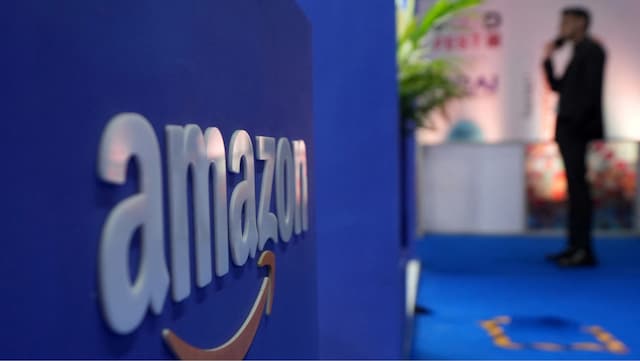
Amazon is reportedly planning to launch an artificial intelligence (AI) content marketplace to provide a common ground for publishers and AI developers. As per the report, the project could be headed by the Seattle-based tech giant’s cloud computing division Amazon Web Services (AWS). The project is said to be at the discussion stage currently, and it is unclear how much progress has been made around it.

OpenAI might have turned its fortunes this week. As per multiple reports, the company CEO Sam Altman had announced a “code red” in December 2025, asking all employees to focus on improving ChatGPT and related products, while putting everything else on hold. The concentrated effort led to the release of GPT-5.2, adjustable personality traits in ChatGPT, new healthcare features, and a new artificial intelligence (AI) model for Codex.

OpenAI announced on Monday that it has begun testing ads in ChatGPT. The Sam Altman-led tech firm highlighted that the ads are currently being displayed only in the US, and will later be rolled out in other regions to free users and Go subscribers. The company claims that the platform will not share the conversations and interactions of users with the advertisers. However, OpenAI did highlight that ChatGPT will display ads based on a user's prompts and the history of conversation.